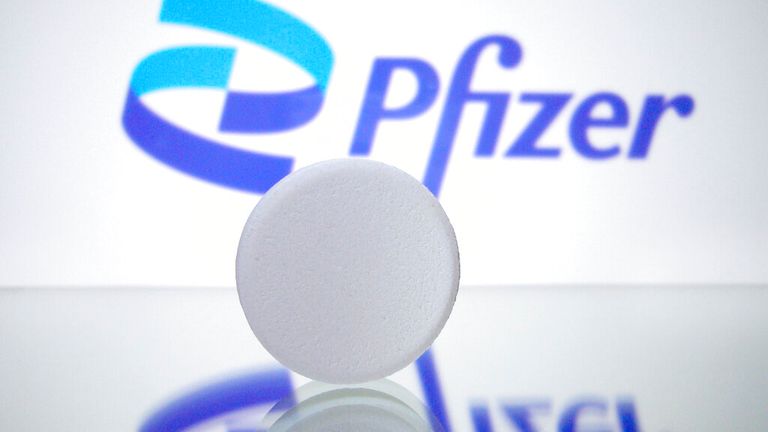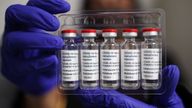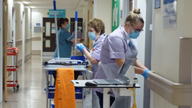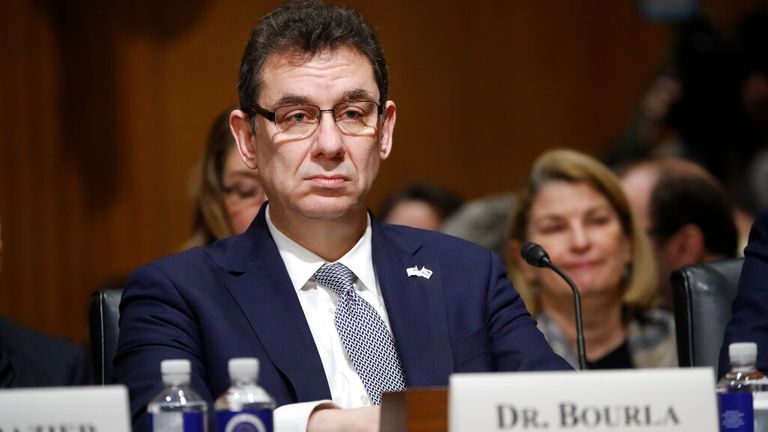Pfizer sees revenues double to $81bn thanks to COVID-19 vaccine
Drugs giant Pfizer has doubled annual sales and profits thanks to its COVID-19 vaccine.
The US firm said revenues rose from $41.7bn in 2020 to $81.3bn last year, largely thanks to the vaccine, known as Comirnaty – which accounted for $36.8bn of the total.
Profits climbed from $9.2bn to $22bn.
Pfizer said it expected sales of the vaccine – developed with Germany’s BioNTech – to be worth $32bn this year, but that figure fell short of analysts’ expectations for around $34bn.
It pencilled in a revenue figure of $22bn for COVID-19 oral antiviral treatment Paxlovid for 2022, which also fell a little short of Wall Street’s target. Shares fell 5% in early trading.
Pfizer’s vaccine is used in more than 160 countries.
It aims to make more than four billion doses in 2022, compared with last year’s three billion.
Paxlovid has shown promise in cutting hospitalisation and deaths in high-risk patients and the company expects to produce at least 120 million courses of the pill this year.
Pfizer chief executive Albert Bourla said that in the early days of the COVID-19 pandemic, the company put “all of the resources and expertise we had at our disposal to help protect populations globally against this deadly virus as well as to offer treatments to help avoid the worst outcomes”.
“We put billions of dollars of capital on the line in pursuit of those goals, not knowing whether those investments would ever pay off,” Dr Bourla added.
He said that the successes of its COVID-19 treatments had “made a positive difference in the world”.
Pfizer’s results showed that it sold $7.8bn worth of its jab in the US, $9.4bn in western Europe and $8.1bn in other developed nations including Canada, Japan, South Korea, Australia and New Zealand.
Sales of Comirnaty to emerging markets – including the rest of Asia, Africa, the Middle East, Latin America and central and eastern Europe, totalled $11.4bn.
The amount of money being made by some drug companies from coronavirus jabs has proved controversial and campaigners have called for a waiver on vaccine patents, in order to allow cheap generic versions to be produced and distributed in poorer countries.
In December, World Health Organisation boss Tedros Adhanom Ghebreyesus warned that widespread COVID-19 vaccine booster programmes in developed countries were “likely to prolong the pandemic”.
That was because, he said, they risked diverting supply to countries that had high levels of their populations already jabbed and away from those that need it most.
Anglo-Swedish drugs giant AstraZeneca, which reports full-year results later this week, has in contrast to rivals been selling its COVID-19 at cost.
But it was criticised when late last year it said it now planned to start making a “modest” profit from the drug.




